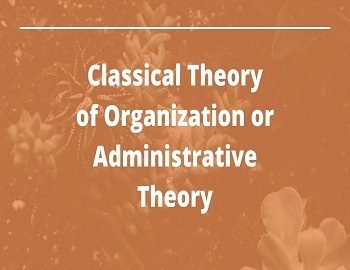Successful Working of Advisory Councils:
The Advisory Councils play a very important role in different administrative departments. These Advisory Councils make public administration efficient and conducive to the public interest at large. These provide a valuable system of communication between the administration and the people, particularly their interest groups.
However, in order to ensure that these should serve their purposefully, the following requisites should be met-
(I) The Advisory Councils should work independently i.e. these should not be a part and parcel of any government department or departments.
(II) In each Advisory Council, there should be an equal number of official and non-official members. This alone can secure the harmonious working of each such council.
(III) The tenure of the Advisory Councils should be fixed. These should have neither very short nor very long tenures.
(IV) The size of an Advisory Council should be compact and the number of members should be small.
(V) The persons attached to these Advisory Councils should not view the issue from a political point of view. Their advice should be based on expert technical knowledge and objectivity.
(VI) The Advisory Councils/bodies should confine themselves to advisory functions only because it is only in this sphere that these can do their job efficiently.
While discussing the importance and role of an Advisory Council, Prof. H. J. Laski observes, “It provides a means for utilizing the services of men who now avoid public life either because they are unwilling to undergo the process of election or because their interest is not in the general complex of government functions but in a single aspect of that complex”. It makes public administration more useful and it lessens the autocracy of government. Arthur Sarter also says, “These constitute an invaluable instrument for breaking administrative measures on the back of the public”. The utility of this new device in public administration may be estimated from the rapid increase in the number of these councils in all the countries of the world. As Prof. Laski says, “Of the value of advisory bodies, there is now no room for doubt”.


![President of India [Article 52-62]- GK 3 President of India](https://gkscientist.com/wp-content/uploads/2021/05/President-of-India-Article-52-62.jpg)






Comments (No)